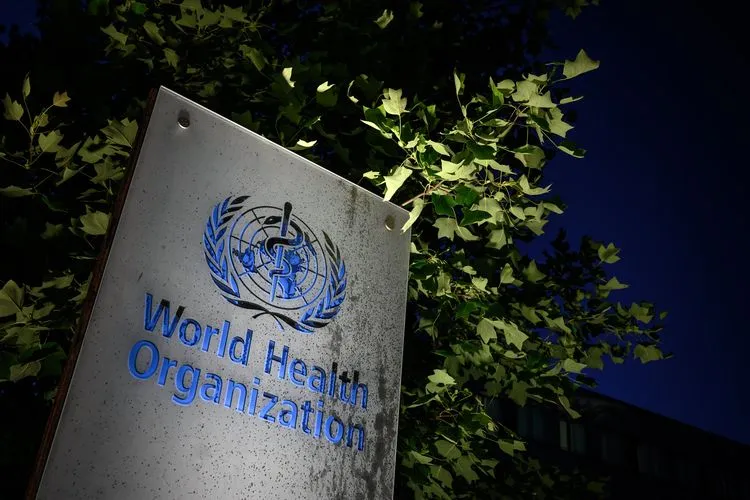
A photo taken at the end of May 29, 2020 shows a sign of the World Health Organization (WHO) at its headquarters, in Geneva, amid the COVID-19 outbreak, caused by the corona virus
The World Health Organization (WHO) reported a daily record in increasing Covid-19 cases on Friday (07/31/2020).
Reportedly, the number of confirmed Covid-19 daily cases was 292,527, with 6,812 dead.
The biggest increases came from the United States, Brazil, India and South Africa. The previous daily case record according to WHO was 284,196 on 24 July. On that date, there were 9,753 people died.
Previously, WHO also reminded that young age does not mean immune to corona virus, rather, young age is one of the highest contributors to corona cases in several countries. "We have said it before and we will say it again, young people remain at risk when exposed to Corona," WHO Director General Dr. Tedros Adhanom Ghebreyesus was quoted by CNBC International, Friday (07/31/2020).
"Young people can be infected, young people can die and young people can transmit the virus to other people," Tedros continued.
*Convincing young people is a challenge
According to Tedros, convincing young people around the world that the virus can pose serious risks to their health remains a challenge for WHO.
Meanwhile, the head of the WHO's zoonosis and disease unit Dr. Maria Van Kerkhove said the majority of younger people tended to have milder symptoms of Covid-19, but not all of them.
Some people with young age even experience severe illness and eventually die.
"People who have minor illnesses, some of them will recover well. But some of them have long-term effects, and we are just starting to really learn about this," Maria Kerkhove said. He added, there are young people who experience severe symptoms such as suffering from extreme fatigue, shortness of breath, or difficulty continuing normal activities such as returning to work or the gym even after they recover. "We are learning what that means," Maria said.
Kerkhove said there are a number of things young people can do to prevent the spread of the corona virus. Among them are washing hands, keeping a social distance, wearing masks and avoiding crowded places like bars. "We consistently see the nightclub as a booster of transmission. It's very unfortunate to know that young people want to resume normal activities," Maria said.
Limit foreign travel WHO also urges countries in the world to limit foreign travel and only prioritize important trips for emergencies.
WHO recommends that priority be given to important travel for emergencies, humanitarian action, travel of important personnel, and repatriation.
The pressure arises due to a surge in new infections in many countries so countries must re-impose some travel restrictions.
WHO urges each country to conduct a risk analysis, its own benefits and decide on its priorities, before allowing international travel.
In its latest travel rules, WHO says countries must consider local epidemiology and existing patterns of transmission, national health and social measures.
There is no zero risk If the country chooses to quarantine all passengers on arrival, they must do so after assessing the risk and considering local conditions, the WHO said.
"There is no 'zero risk'
when considering the potential for import or export cases in international travel, "said a WHO statement quoted from Channel News Asia, Friday (07/31/2020).
Earlier this week, WHO said that international travel bans cannot be applied indefinitely.
Countries must do more to reduce the spread of new corona viruses within their borders.
WHO said that they would update their travel guidelines ahead of the Northern Hemisphere summer vacation.
Earlier in July, WHO urged travelers to wear masks on the plane.
In addition, they also continue to receive information when the Covid-19 case surges again in several countries.
Previous WHO guidelines for travelers have included sensible advice that applies to other settings such as social distance, washing hands and avoiding touching eyes, nose or mouth.